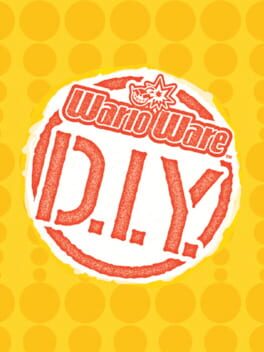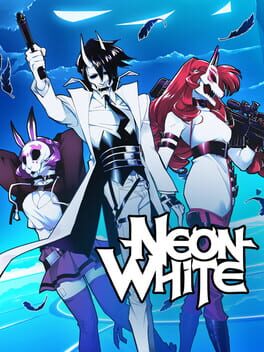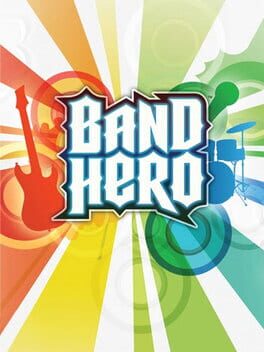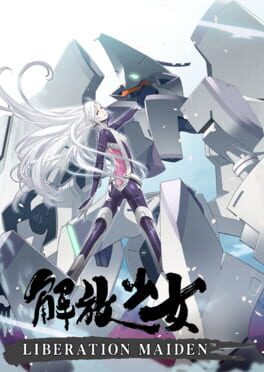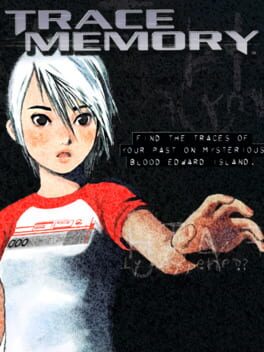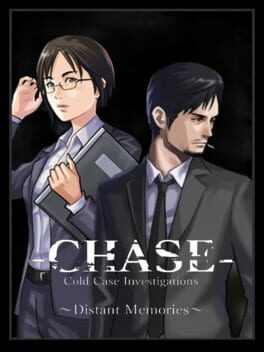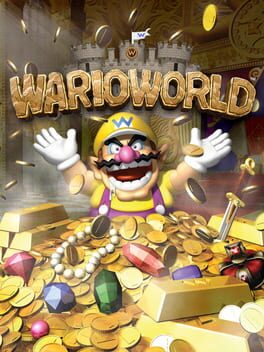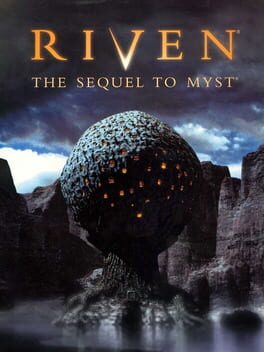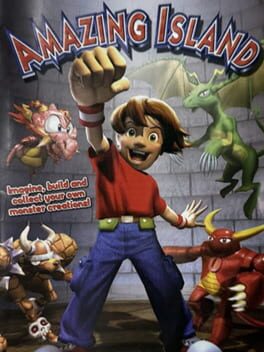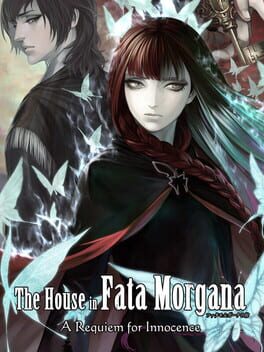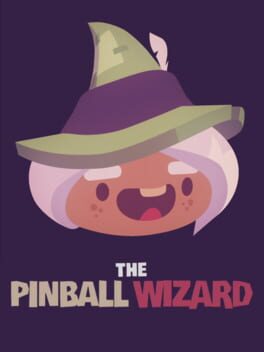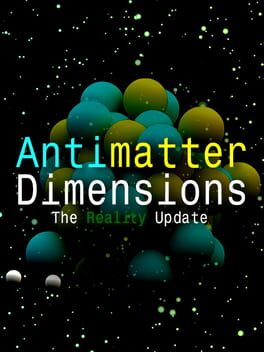LukeFowler
Highly subjective rating; this isn't a perfect VN by any means, it's got some wonky pacing and awkward prose and an aggressively off-putting pair of opening chapters, but my enemies Myers and Briggs both agree I am driven by my emotions, and I forged more of an emotional connection with this story than with nearly any other I've experienced in my adult life. Michel means everything to me.
2009
2022
Gameplay and level design so good that its "flaws" could be more aptly called "imperfections"; the devs occasionally err on the side of traversability over polish (meaning bits of level geometry that help with gift challenges can gum up normal runs), some of the chain reactions built into levels aren't usefully telegraphed, and there are a few "where do I go now?" moments that feel like imprecise design rather than intentional mini-puzzles. (It gets particularly annoying when exploding barrels shoot you up into the empty sky, with no clear indication which direction you're supposed to turn afterward.) But on the whole, this is a game I've been waiting my whole life to play, or at least the decade and change since mastering League of Evil on my old iPod Touch in high school. As someone who can barely hold his own even in the rare FPS games I enjoy, I aced every level apart from most of the 11th chapter, and that's only because I know for a fact I'm going to optimize the shit out of those levels over countless hours of trial and error. I cannot wait to play even more of this game.
However, I must confess I skipped every single cutscene as soon as I realized the dialogue was going to be Like That for the whole game. Every single one.
However, I must confess I skipped every single cutscene as soon as I realized the dialogue was going to be Like That for the whole game. Every single one.
2009
The most fascinating, baffling soundtrack any of these games ever had. My 12-year-old self yearned to play the Counting Crows track at a friend's house one day (none of them ever bought this one, alas)—how would he feel about his older counterpart finally owning this game and preferring instead to tackle "You Belong With Me" on repeat?
2012
2005
The writing's severely bloated, and there's this awful mechanic where half the time you can only pick up usable items after you've already found what they interact with. "Luke," you might ask, "aren't the writing and item puzzles the two things that need to be good in a point-and-click adventure? Why did you like this game if those weren't up to par?" Well, hypothetical reader, it's because I'm a sucker for the DSthetic, and this is the most quintessentially "Nintendo DS" game I've played in forever! It's short, easy, laid-back, largely family-friendly, and uses quite literally every single hardware gimmick the original DS shipped with. (Seriously, if you get stuck on a puzzle, odds are you can solve it by asking yourself "which frivolous console features haven't been used yet?" It worked twice for me!) It's the sort of game that could easily have been a formative piece of media for me if I'd encountered it 15 years ago, and one I can see myself replaying whenever I need to de-stress and just sit down with a game that isn't too demanding. Especially since I'm pretty sure I got the bad ending this time around.
When I got to the end of this game’s tutorial case, I wasn’t sure if I wanted to play the whole thing. I didn’t know how many cases awaited me, but the Ace Attorney Trilogy collection had 16 cases and went for $30, so five seemed reasonable, given this one’s visibly lower production values and $10 price tag. (I should also add that this game’s first case is significantly shorter than Phoenix Wright: Ace Attorney’’s tutorial.) But I wasn’t sure I could stand four more cases of that gameplay. Chase consists almost entirely of memorizing clues and watching the characters figure out their significance on their own, quizzing you not on your problem-solving skills but on your knowledge of trivia like characters’ names. It’s broken up by a few hidden object puzzles, but only one of them has any kind of penalty for an incorrect answer (which is, hilariously, an instant game over). I wasn’t a fan of the writing, either—the main investigator seems deliberately designed to be as unbearable as possible, and while I understood it was just a starting point for his development, that didn’t make his dialogue any more fun to read in that first case. And the rest of the dialogue was a repetitive slog too! When the case’s (admittedly surprising) cliffhanger hit and the opening credits rolled, I was considering putting the game down for good.
And then it turned out those were the closing credits. That was the entire game.
And then it turned out those were the closing credits. That was the entire game.
2003
Charles Martinet popped OFF on this one. Could’ve used another world or two, if only to help pad out the difficulty curve (the last level especially feels like an ultra-sadistic bonus stage), but Treasure keeps a steady flow of creativity running through these levels, which mostly manage to balance sprawling layouts with focused design. I actually think the game could’ve been even better if they’d leaned more into the non-linearity—each level is full of alternate paths and entire sub-areas that fold back in on themselves beautifully, but progress is often gated by annoyingly specific bottlenecks. (That is to say: required area A and optional areas B and C will all be fully interconnected, but required area D will only be accessible from area A. I’d like these levels a lot more if A, B, and C all led to D. U C?) Gloriously unhinged boss designs, too; shame the final one is such an anticlimax. Would’ve killed for a 3DS remake of this back in the day.
2004
"Assento Dele" is the real star of the show here: a short, heartbreaking, neatly packaged short story revealing new depths to the greatest character in video game history.
"A Requiem for Innocence" proper was…a little disappointing, if I'm honest. The first half especially feels like a compilation of all the most widely criticized aspects of the main game, from its overreliance on "misery porn" to its repetitive dialogue. The way the game doubles down on the nature of Jacopo and Morgana's relationship is particularly unfortunate—it's not quite the emotional crux of the story as I feared it would be, but the notion of Jacopo the Groomer still sours an otherwise perfectly believable caretaker relationship, all for the sake of a few dozen lines of dialogue (which is a pittance in this context). By the time the "Part II" title hits, apart from the introduction of two new characters, there's hardly anything in "A Requiem for Innocence" that couldn't already be gleaned from the base game, in terms of breadth or depth.
The second half shines, though. Once the plot refocuses itself on the themes and dilemmas that define the series (most notably its explorations of the different ways people respond to pain and hardship), it becomes a gripping tragedy, with even scenes taken verbatim from the original game taking on new significance. (One in particular receives a new, totally gutting presentation that's up there with any of the most excruciating moments in the original.) Part II is so many orders of magnitude better than Part I that I almost wish the story had just started at the halfway point. It's still decent overall, but superior to The House in Motherfucking Fata Morgana? Not a chance.
Also, that Michel/Giselle story is lovely. Just the sort of epilogue I wanted for them. I'll still play Reincarnation at some point, of course, but a part of me wonders whether it was really necessary, you know?
"A Requiem for Innocence" proper was…a little disappointing, if I'm honest. The first half especially feels like a compilation of all the most widely criticized aspects of the main game, from its overreliance on "misery porn" to its repetitive dialogue. The way the game doubles down on the nature of Jacopo and Morgana's relationship is particularly unfortunate—it's not quite the emotional crux of the story as I feared it would be, but the notion of Jacopo the Groomer still sours an otherwise perfectly believable caretaker relationship, all for the sake of a few dozen lines of dialogue (which is a pittance in this context). By the time the "Part II" title hits, apart from the introduction of two new characters, there's hardly anything in "A Requiem for Innocence" that couldn't already be gleaned from the base game, in terms of breadth or depth.
The second half shines, though. Once the plot refocuses itself on the themes and dilemmas that define the series (most notably its explorations of the different ways people respond to pain and hardship), it becomes a gripping tragedy, with even scenes taken verbatim from the original game taking on new significance. (One in particular receives a new, totally gutting presentation that's up there with any of the most excruciating moments in the original.) Part II is so many orders of magnitude better than Part I that I almost wish the story had just started at the halfway point. It's still decent overall, but superior to The House in Motherfucking Fata Morgana? Not a chance.
Also, that Michel/Giselle story is lovely. Just the sort of epilogue I wanted for them. I'll still play Reincarnation at some point, of course, but a part of me wonders whether it was really necessary, you know?
2019
I’ll always be a sucker for some pinball in virtually any context, but this has absolutely nothing new to offer after unlocking everything—which only takes a couple hours, especially if you invest in certain OP skills early. A key element of roguelikes as a genre (and pinball, for that matter) is that they need to have enough mechanical variety to keep repeat runs from feeling like replays of the same game, and The Pinball Wizard…doesn’t. And like fellow Apple Arcade killer app Grindstone, it’s streamlined in all the wrong areas. For example, after a Daily Dungeon, why does it take a minimum of twenty seconds to tally up loot and experience, add them up to your total score, display the leaderboard, and let you back in for another try? I’ve had runs that didn’t even last that long!
1994
Have you ever stopped to consider how much your power has grown?
Now, you could fell enemies in Onett and Twoson with one blow.
Loses half a star for the inane, 2010-vintage internet humor throughout (you can turn the news ticker off, but not the achievements), and another for a curiously underwhelming final stretch. (Not going to spoil the details, but I'm referring to everything from Singularities onward.) Talking about the design of Antimatter Dimensions can sound like you're describing a game from…well, another universe, and I encourage anyone reading this to give it a shot if that description interests you whatsoever. Don't worry if you tap out after a while; that's canon!
Now, you could fell enemies in Onett and Twoson with one blow.
Loses half a star for the inane, 2010-vintage internet humor throughout (you can turn the news ticker off, but not the achievements), and another for a curiously underwhelming final stretch. (Not going to spoil the details, but I'm referring to everything from Singularities onward.) Talking about the design of Antimatter Dimensions can sound like you're describing a game from…well, another universe, and I encourage anyone reading this to give it a shot if that description interests you whatsoever. Don't worry if you tap out after a while; that's canon!
2022
Went for 100% on replay; i.e., got all the Ace medals (and surprised myself with a few red ones too), completed all the gift challenges and sidequests, and against my better judgment, I even read all the dialogue. I left this run-through of Neon White with new appreciation and new frustrations in roughly equal measure, with intersections between the two that'd take an essay to unravel, or maybe a three-hour YouTube video called "Neon White: An Exhaustive Critique" or some bullshit. I'll save that for round 3.

